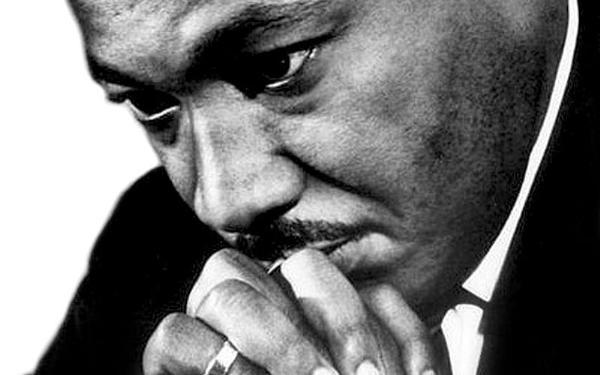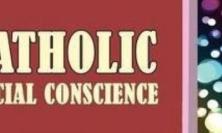
Cardinal Cormac Murphy O'Connor has called for a free vote on those parts of the Human Fertilisation and Embryology Bill which deal with fundamental matters of conscience. Is this an unwarranted involvement of religion in politics? The Heythrop Institute for Religion, Ethics & Public Life looks at the connections between religion and the development of political respect for conscientious objection.
Cardinal Cormac Murphy O’Connor’s letter of 19 February urges Catholics to contact their MPs to encourage them to support amendments to The Human Fertilisation and Embryology Bill. The Cardinal insists that ‘our Christian witness can never just be personal but involves us too as citizens committed to serving the common good of society and to upholding the human dignity of all’. His letter also calls for a free vote in Parliament because of some MPs' conscientious objections to aspects of the Bill. Is this an unwarranted involvement of religion in politics?
Who would claim that the campaign for civil rights in America, one of the major political events of the twentieth century, was not profoundly driven by faith in a Christian message which affirmed the fundamental equality of all men and women? For Martin Luther King, politics and religion could not be separated. The grasp of principle, the strength of commitment to the cause, and the willingness to accept the price in terms of suffering, and in his case even assassination, all derived from faith in Christ. The religious and the political were indistinguishable and if anything it was the dynamism of faith which shaped the political in this context. Any demand that religion and politics be kept separate could only appear as a veiled attempt to preserve the status quo of politics and secure a politically unjust situation from the challenge made in the name of justice, equality and human dignity, all values rooted in this case in a Christian vision.
Martin Luther King was identified with the Campaign for Civil Rights, but he also spoke out against the Vietnam War and against his country’s involvement in many parts of Latin America and elsewhere in Asia. In a sermon at Riverside Church, New York, in 1967 he referred to the Nobel Prize for Peace which he had received in 1964 as a ‘commission’:
a commission to work harder than I had ever worked before for “the brotherhood of man”. This is a calling that takes me beyond national allegiances, but even if it were not present I would yet have to live with the meaning of my commitment to the ministry of Jesus Christ. To me the relationship of this ministry to the making of peace is so obvious that I sometimes marvel at those who ask me why I am speaking against the war. Could it be that they do not know that the good news was meant for all men – for communist and capitalist, for their children and ours, for black and for white, for revolutionary and conservative? Have they forgotten that my ministry is in obedience to the one who loved his enemies so fully that he died for them? What then can I say to the “Vietcong” or to Castro or to Mao as a faithful minister of this one? Can I threaten them with death or must I not share with them my life?
Conscientious objection to war and to any use of armed force was pioneered by the various religious groups often labelled the ‘Peace Churches’. These included the Society of Friends (Quakers), The Mennonites, The Amish, and various congregations of ‘Brethren’. Jehovah’s Witnesses also appealed to religious conviction to justify their pacifism. Dorothy Day of the Catholic Worker Movement led a Catholic pacifist stance which rejected all involvement in war. In the United States, the position of such religiously motivated pacifists was recognised respectfully in legislation in the Military Selective Services Act (1940) which relieved them explicitly of the requirement to bear arms: ‘Nothing contained in this title shall be construed to require any person to be subject to combatant training and service in the armed forces of the United States who, by reason of religious training and belief, is conscientiously opposed to participation in war in any form … the term “religious training and belief” does not include essentially political, sociological, or philosophical views, or a merely personal moral code.’ (Section 6(j))
Such a sharp distinction between religious beliefs and philosophical views is rejected explicitly in the Catholic tradition, which emphasises that the human capacity to reason is God-given to enable humans to find the truth and do what is right. The continuity of the natural law with the revealed law is stressed by Catholics. Eventually, the American courts came to recognize the anomaly in respecting ‘religious’ but not ‘moral’ reasons of conscience, and ruled, e.g. in 1965 in United States v. Seeger, that the words ‘religious training and belief’ must be interpreted to mean ‘any sincere and meaningful belief which occupies in the life of its possessor a place parallel to that filled by the God of those qualifying for exemption’.
To date, in both the UK and the USA, the category of conscientious objector includes only pacifists, i.e. those who object to any use of armed force in war, whether for religious or moral reasons. But in the Catholic tradition of reflection on the criteria for a justified use of armed force, usually labelled ‘just war theory’, the position taken by conscientious citizens motivated by their faith does not entail total pacifism. Where certain conditions are met, as for instance, just cause, proper authority, proper proportion of goods to be achieved in comparison with the harms done, likelihood of success, and exhaustion of all other means, engagement in war can be justified. But in a case in which a citizen makes the judgment that one or other of the criteria for justified participation is not met, then in conscience he or she may refuse to cooperate. This stance is not recognized in law as qualifying one as a conscientious objector, but selective conscientious objection is a significant part of the Catholic tradition and heroic individuals, such as the Austrian farmer, Franz Jägerstätter, executed for his refusal to serve when conscripted into the army of the Third Reich, have exemplified this stance. Last October he was beatified by the Church, which acknowledged his heroism based on his faith. Through the intervention of the English Jesuit Archbishop Roberts, Jägerstätter’s case became the exemplary instance in the Second Vatican Council’s recognition that the refusal on conscientious grounds to serve in an unjust war was a witness to the faith (Gaudium et spes, no. 79).
Selective conscientious objection is not yet generally recognized, even in those countries which have developed a recognition of pacifist conscientious objection, but perhaps here too the articulation of the case in religious terms will create the precedent which will make possible the acknowledgement of warranted selective conscientious objection on moral and philosophical grounds.
A little research into the history of conscientious objection shows how respect for conscience has developed due to challenges rooted in religious values. The process could go much further. While the concept is still applied principally to military service, Catholics have a much broader application of the term than what is recognised in the law and in popular opinion. The latter have been changing and developing to be more expansive but we should be able to expect similar respect for conscientious refusal by citizens to co-operate – whether for religious or moral reasons – with state-led action in the areas of medicine, social welfare, education, and other aspects of public life.
This article was originally published in the Rapid Response series on the web site of the Heythrop Institute for Religion, Ethics and Public Life.
![]() Heythrop Institute for Religion, Ethics and Public Life
Heythrop Institute for Religion, Ethics and Public Life
![]() Rapid Response from the Heythrop Institute
Rapid Response from the Heythrop Institute





